Race, Nation, and Reform Ideology in Winnipeg, 1880s1920s
Race, Nation, and Reform Ideology in Winnipeg, 1880s1920s
Kurt Korneski

FAIRLEIGH DICKINSON UNIVERSITY PRESS
Madison Teaneck
Published by Fairleigh Dickinson University Press
Copublished by The Rowman & Littlefield Publishing Group, Inc.
4501 Forbes Boulevard, Suite 200, Lanham, Maryland 20706
www.rowman.com
Unit A, Whitacre Mews, 26-34 Stannary Street, London SE11 4AB
Copyright 2015 by Kurt Korneski
All rights reserved. No part of this book may be reproduced in any form or by any electronic or mechanical means, including information storage and retrieval systems, without written permission from the publisher, except by a reviewer who may quote passages in a review.
British Library Cataloguing in Publication Information Available
Library of Congress Cataloging-in-Publication Data
Korneski, Kurt, 1975
Race, nation, and ideology in Winnipeg, 1880s-1920s / Kurt Korneski.
pages cm.
Includes bibliographical references and index.
ISBN 978-1-61147-849-5 (cloth : alk. paper) -- ISBN 978-1-61147-850-1 (electronic)
1. Winnipeg (Man.)--Social conditions--19th century. 2. Winnipeg (Man.)--Social conditions--20th century. 3. Social reformers--Manitoba--Winnipeg--Biography. 4. Social problems--Manitoba--Winnipeg--History. 5. Social movements--Manitoba--Winnipeg--History. 6. Indians of North America--Manitoba--Winnipeg--Social conditions. 7. Winnipeg (Man.)--Race relations--History. 8. Ideology--Social aspects--Manitoba--Winnipeg--History. 9. Nationalism--Social aspects--Manitoba--Winnipeg--History. 10. Winnipeg (Man.)--Economic conditions. I. Title.
HN110.W5K67 2015
303.48'409712743--dc23
2015009870
 TM The paper used in this publication meets the minimum requirements of American National Standard for Information Sciences Permanence of Paper for Printed Library Materials, ANSI/NISO Z39.48-1992.
TM The paper used in this publication meets the minimum requirements of American National Standard for Information Sciences Permanence of Paper for Printed Library Materials, ANSI/NISO Z39.48-1992.
Printed in the United States of America
Acknowledgments
However many solitary hours we spend researching and writing, every book is a social product. And, while obviously I am responsible for the assertions and views expressed in this volume, the work reflects the efforts, generosity, criticism, and assistance of a large number of people and institutions.
This book is as an outgrowth of my PhD thesis, a work I completed a decade ago under the supervision of Gregory Kealey and the late Andy den Otter. I am thankful for having had the opportunity to work with such accomplished and generous scholars. Their patience and guidance were crucial to the completion of that project. While the roots of this work extend back over a decade, the book is also quite different from the thesis I completed in 2004. The differences between the two works reflect research, intellectual engagement, and mentoring during the several years after I completed my graduate work. Particularly significant was the vibrant intellectual environment I encountered as a postdoctoral fellow at the University of Manitoba. Special thanks are due Adele Perry who, through her Canada Research Chair, funded my position at Manitoba. Beyond providing me with a means of subsistence, Adele graciously included me in seminars, meals, and other gatherings she organized in honour of visiting scholars. She also cheerfully entertained my many questions about post-colonialism and the history of empire, often responding with lengthy lists of suggested readings. It is difficult to overstate the importance of having had this time to read, to conduct additional archival research, and to reflect. Such opportunities are all too rare in an academic world overburdened by administrators and increasingly driven by productivity quotas. Every page of this work reflects the thinking and rethinking I was able to undertake during that time.
While Adeles suggestions and the opportunities she provided were essential to my intellectual growth and to the views and interpretations found in this volume, I would be remiss if I did not mention at least a few of the many other people with whom I engaged while at Manitoba. At St. Johns College, where I had an office, I shared stimulating coffee and lunch breaks with Barry Ferguson, Gerald Friesen, Ryan Eyford, Warren Cariou, Struan Sinclair, Brenda Cantelo, Chistopher Trott, Ivan Froese, Dennis Cooley, and Lesley Cowan. I also had the good fortune of meeting a talented group of graduate students and lecturers -- including Michael Kirkpatrick, Marc Roy, Tyler Shipley, Ana Vialard, Matt McLean, and Rob White -- through my involvement with Canadian Union of Public Employees, Local 3909. The often highly charged discussions of theory, history, politics, and union strategy that unfolded in various meetings with these individuals have also contributed to the views and interpretations expressed in the proceeding pages.
While much of the research and thinking for this book took place during my time at the University of Manitoba, I finished drafting it after returning to Memorial in 2006. Since that time, I have had much support and encouragement that helped me to see this project through. Robert Sweeny, Sean Cadigan, Jeff Webb, Chris You, and Robin Whitaker all read and commented on the manuscript in part or in full. I extend my sincere thanks to them for their suggestions and criticisms. I would also like to thank Danielle Bishop and family, Allan Byrne, Matthew Byrne, Calvin Hollett, Skip Fischer, Mike OBrien, and Keith, Teil, Nick, and Mariel Korneski, all of whom have been supportive of this project and my endeavors more generally in different ways.
It is incumbent that I acknowledge the financial and other support that made this study possible. I received fellowships from Memorial University of Newfoundland and the Social Sciences and Humanities Research Council of Canada while I was a doctoral candidate. I also received a T.H. Hamilton Research Grant from the University of Manitoba Archives and Special Collections (UMASC) and funding from the J.W. Dafoe Foundation. I was also fortunate to have the assistance of knowledgeable and helpful archivists and librarians at the Archives of Manitoba and at UMASC. Lewis Stubbs and Chris Kotecki deserve special thanks, as they were always helpful and willing to share their immense knowledge of local collections and of Manitoba and Winnipeg history. Harry Keyishian and Kalman Goldstein of Fairleigh Dickinson University Press also have been supportive, professional, and unfailingly helpful throughout the review and revision process.
Finally, Id like to express my gratitude to my grandfather, the late Willard C. Frank, and the late Marvin S. Rosen. Both men were mentors and friends in their own ways, and it is to their memory that this book is dedicated.
Introduction
During the late nineteenth and early twentieth centuries, a host of politicians, businessmen, lawyers, journalists, medical doctors, and clergymen called for an assault on disease, poverty, slums, alcoholism, inadequate educational institutions, social conflict, prostitution, and other social evils. Although these men and women advocated diverse political positions and strategies to address what they viewed as problems, historians have termed this broad impulse reform or the reform movement. Over the past several decades scholars have developed two main approaches to understanding reformers, their activities, and their organizations. Some, mostly writing before the mid-1980s, argued that reform was an effort to reconstitute the nation in the face of the anonymity and social conflict and ills apparent in modern, urban-industrial society. Although scholars have long noted that reform was about addressing social ills and imposing particular norms through appeals to the well being of the nation, the fact that Canada was a settler nation fundamentally shaped the function reform institutions played, as well as the ways reformers perceived and responded to the social ills they addressed.
Next page
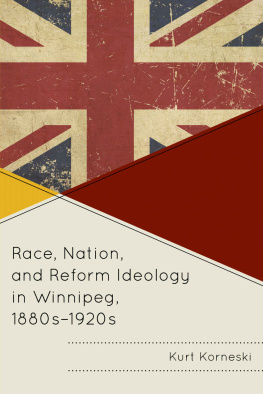

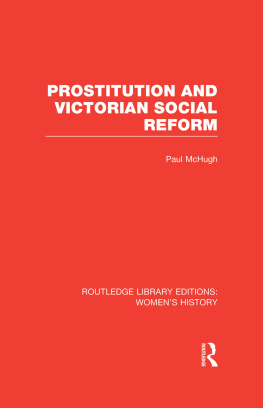
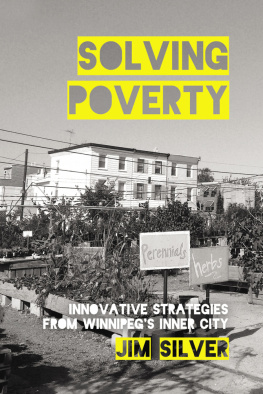
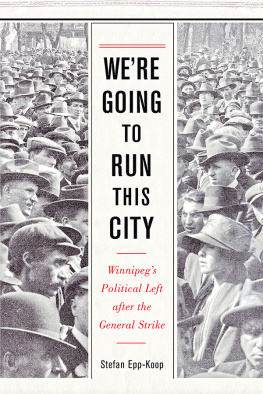
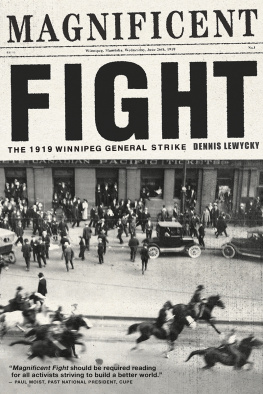

 TM The paper used in this publication meets the minimum requirements of American National Standard for Information Sciences Permanence of Paper for Printed Library Materials, ANSI/NISO Z39.48-1992.
TM The paper used in this publication meets the minimum requirements of American National Standard for Information Sciences Permanence of Paper for Printed Library Materials, ANSI/NISO Z39.48-1992.